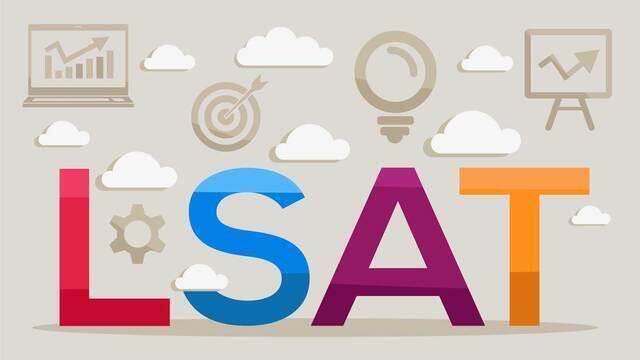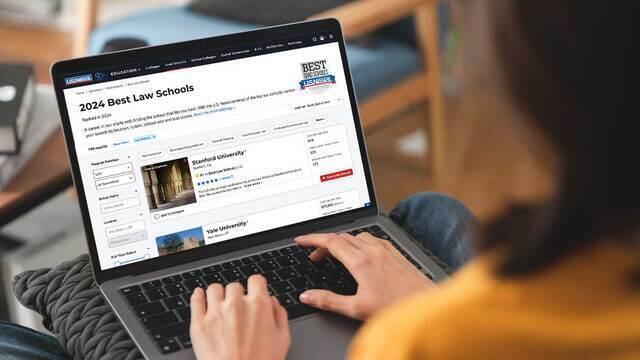So, you're in the market for an LSAT tutor? Finding the right tutor can be a game-changer for future law students.
After all, the LSAT is a skills-based test. Acquiring the skills to unlock that high LSAT score is not unlike acquiring any other complex skill set. Baking that perfect sourdough loaf, executing a perfect golf swing, beating the game on its hardest setting — these skills all depend on the elusive combination of knowledge, practice, and an ineffable quality we'll call — for lack of a better term — "feel."
The LSAT is no different. True LSAT experts know there's a feeling they get with certain questions. Simply by reading a Logical Reasoning question or Reading Comp passage, they can feel the issues presented. They can predict what the question will ask and what the correct answer will probably say. By setting up a logic game, they get a feeling about how the rules connect and how they can solve the game.
For any of these skills, you acquire the knowledge — the recipe for that sourdough loaf, the mental picture of a perfect swing, the steps you need to take to beat the level, or the concepts the LSAT tests. Then, you practice, practice, practice. Eventually, you synthesize the knowledge and practice into that magical feeling.
There are myriad videos and guidebooks you can use to acquire the requisite knowledge. There are plenty of resources that provide the opportunity to practice. But that feeling — you have to find that feeling yourself.
Unless, of course, you have a little help. Imagine if you had an expert baker at your side to show you exactly what the dough should feel like at each stage of the baking process. Or, a pro golfer to adjust your body and help you figure out how you should feel as you swing the club. Or, an LSAT expert to help you work through the exam's many concepts. That would be a fast track to acquiring that game-changing "feeling."
And that's the service that a good LSAT tutor can provide. Unfortunately, not all LSAT instructors are created equal. There is no licensing or accreditation process for tutoring the LSAT, so it's up to you to evaluate your potential tutor. Unfortunately, many students don't bother to research their tutor, believing that anyone teaching the LSAT must be qualified to do so. Sadly, that's not the case. In fact, there's so much bad LSAT advice out there that we were able to sustain a series of blog posts on the topic.
Choosing the wrong instructor early on can be disastrous. Obviously, there's the whole waste-of-time-and-money element. But more than that, unlearning a bad tutor's incorrect approach is much more arduous than just studying correctly from the beginning. That will only make it harder to acquire that elusive "feeling."
But how can you figure out if you're hiring the right tutor? When you have limited knowledge or experience with the LSAT, it can be hard to determine whether a prospective tutor is the right fit for you. To help you out in this process, this post will cover four factors you should consider when selecting your LSAT tutor. If you find a tutor with these four criteria, you should feel good about giving that tutor your time and attention.
1. Do they seem like LSAT experts, and do they communicate that expertise in a way that makes sense to you?
Obviously, any LSAT tutor worth your time and money needs to be an LSAT expert. They should provide uniformly sound strategic advice to you. They should be able to construct a reliable study plan for you. They should be intimately familiar with all the concepts the LSAT tests and how often the LSAT tests them, to make sure that your time together focuses on the material that will yield you the most points on the LSAT. They also need to understand these concepts well enough to teach them in multiple ways, so they can adapt their advice to your needs or learning style.
But, when you're not an LSAT expert, it can be hard to judge whether your prospective LSAT tutor has that expertise. Still, there are some clear red flags you can look for.
First, you can research the hiring standards of the tutoring service you plan to use. For example, some well-known prep companies do not require their instructors to score in the 99th percentile on an official, LSAC-proctored LSAT. (This is especially prevalent with tutor services that do not specialize in the LSAT.) If your tutor didn't attain a high score on the LSAT, they're essentially trying to teach you something they could never accomplish themselves. These instructors probably don't have the expertise you're looking for.
(I've been interviewing and hiring LSAT instructor candidates for many years, so I have some experience evaluating prospective tutors. My favorite shorthand for testing an instructor's LSAT knowledge is asking whether a test-taker can use background information on the Logical Reasoning section. If they respond "no," I'll know they're probably not true LSAT experts. Instead, they're probably just repeating advice they heard and don't have much experience teaching the LSAT. We discuss why this popular piece of advice from LSAT instructors is wrong and harmful to students in this blog post.)
Another way to evaluate your potential instructor's expertise is by asking how long they have been teaching the LSAT. Obviously, this is an imperfect shorthand — plenty of novice instructors have a level of expertise that plenty of veteran instructors lack. But considering the high turnover rate in the LSAT prep space, experience is still a useful metric. After working a few dozen students, instructors will slowly hone their techniques and teaching skills. With time, some LSAT instructors can distinguish the approaches that resonate with students from those that confuse students. Unfortunately, some LSAT instructors don't teach long enough to figure this out, and they end up repeating misleading, misguided, or just plain wrong LSAT advice to their students.
But their ability to communicate their expertise to you is just as important as the expertise itself. LSAT concepts can get a little abstract. Many people — even brilliant people — can find it difficult to communicate these concepts straightforwardly. Some tutors, unfortunately, rely far too much on jargon and invented terminology, alienating their students who can't figure out what their tutor is trying to say.
Other tutors avoid that jargon. Instead, these tutors use intuitive, memorable phrases or analogies to teach essential strategies and concepts. They bridge the "expert gap" that separates them and their students, and meet their students on the students' levels.
Testing your tutors' ability to communicate clearly and concisely might take a session or two. One exercise you can do is the "checkmark exercise." As you work through a tutoring session, surreptitiously write down a little check mark every time you ask the tutor to clarify what they just said. If they try to clarify and you still can't make heads or tails of what they said, write down another checkmark. If your tutor averages more than five checkmarks per hour, consider finding a new tutor.
LSATMax students can perform this test without paying for a tutoring session. LSATMax tutors have hosted thousands of Office Hours sessions, covering virtually every part of the LSAT study journey. Recordings of these sessions are available for free to any LSATMax subscriber. So, LSATMax students can review Office Hours recordings to see whether prospective tutors can communicate in a way that makes sense to them.
2. Do they help you understand the LSAT or just show you what they'd do?
Beyond simply being an expert, the right LSAT tutor can help you acquire the expertise you need to earn your target score.
Some LSAT tutors don't seem terribly interested in that, though. They seem more interested in just showing off their expertise to their students. Rather than engage their students in the process of solving LSAT questions, these LSAT tutors just demonstrate how they'd approach the question. They communicate their thought process as they work through the question, and they expect this knowledge to flow to their students by osmosis or magic or some other force that, unfortunately, has no empirically demonstrated educational effect.
This style of teaching can be seductive. During the session, it can feel like the LSAT is being demystified. But, after a few lessons, you may wonder why you're not getting any better at the LSAT when you sit down and attempt some questions on your own. You may realize that without your tutor helpfully explaining their thought process, you have trouble reasoning your way through the question.
Rather than giving their students the illusion of progress, good tutors engage their students and help students answer questions themselves. Good tutors ask questions to guide their students through questions. Good tutors ask you to articulate your thought process and recommend adjustments when appropriate. This requires good tutors to listen more than they speak.
When looking for a tutor, ask for one with this teaching style. It can also help to ask whether anyone at the company manages or oversees the tutors' instruction. When tutors are left to their own devices, many default to the "show you how I'd do it" approach. These tutors can get quite popular with students — again, this teaching style is seductive. Without an experienced and knowledgeable person to coach these tutors to help their students solve problems on their own, you risk working with a tutor who can display but not convey their expertise.
3. Do they help you reliably?
If you're paying for one-on-one tutoring, you should expect a baseline level of reliability. It should be easy to schedule sessions with your tutor. Your tutor should show up to those sessions on time and be ready to work. If you're working with your tutor remotely, your tutor should be tech-savvy enough to share their screen, pull up relevant LSAT materials, and use an online whiteboard.
But more than just these baseline expectations, your tutor should be able to reliably optimize the time you spend together. Ideally, your tutor should be able to provide resources that will help you get the most out of these sessions. You don't want to spend too much during sessions waiting for your instructor to figure out what to review that day or find the right question to go over.
Far too many prep companies do not provide their tutors with materials to use with their students. (Again, this is especially common with prep companies that do not specialize in the LSAT.) These companies do not provide their tutors with materials that can help the tutor oversee what the student does outside of the tutoring sessions, making it harder for the tutor to figure out what the student needs extra help with. Even if the tutor realizes you need extra help with a particular concept, the company may not provide the tutor with resources that help the tutor and student review that topic.
So, if you're using a test-prep company to find a tutor, ask the company what resources it provides to their tutors to facilitate the learning process. If you're using an independent tutor, ask that tutor about the resources they use with their students and their level of familiarity with any materials you plan on bringing to the session. Asking these questions while searching for a tutor can ensure that your tutor can reliably answer your questions while you work with the tutor.
4. Do you vibe with them?
You might end up spending a lot of time with your tutor. You may be surprised at how much you grow to rely on them for emotional support and advice, especially because studying for the LSAT can be an occasionally stressful process.
So, make sure your tutor is someone you think you'll actually like spending time with. Beyond their LSAT knowledge and teaching style, think about characteristics your ideal tutor would possess. Maybe it's important that they have a similar background to you. Maybe it'd be nice if they had a particular sense of humor. Maybe you'd appreciate it if they maintained a positive, upbeat energy. Whatever the particular qualities a tutor has, let's say all of these qualities contribute to one's "vibe." Make sure your tutor has a "vibe" you can, well, vibe with.
This is one way a test-prep company can outperform independent tutors — test-prep companies can hire a diverse set of tutors with unique vibes that can appeal to the most students. This will improve the chances of finding the tutor with the vibe you're looking for.
No matter what vibe you're looking for, you should strongly consider looking for a tutor who went through a similar study process as you. For most test-takers, this study process is full of hard work and features some momentary setbacks. If your tutor was an LSAT "natural" and did not have to study very hard for the exam, they will not know what it feels like to struggle and hit walls with your LSAT prep. That tutor will not know firsthand what it is like to run out of time or constantly pick the wrong answer after eliminating all but two. An LSAT tutor who started with a lower score before studying their way to the 99th percentile on a real, LSAC-proctored LSAT is uniquely qualified to help you do the same.







